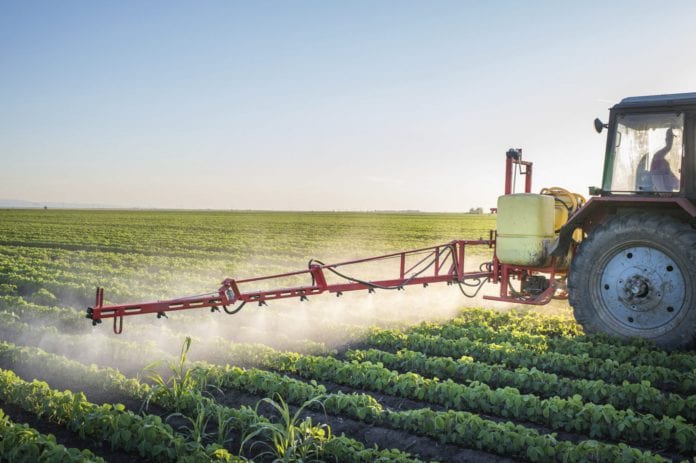NUI Galway is seeking families to take part a new study investigating background levels of exposure to the pesticide glysophate.
Scientists at NUIG are carrying out a study on 50 families each from farm and non-farm areas in the first ever pesticide study of its kind in Ireland.
Glysophate is the most used pesticide in the world, serving as the active ingredient in over 750 products including Roundup.
It’s extensively used in agriculture and horticulture to combat weeds, and is regularly sprayed as a pre-harvest drying treatment on certain food crops.
It is also widely sprayed in parks, public spaces, lawns, gardens and roadsides as well as for amateur use.
The most common ways in which people are exposed to a pesticide like glysophate is through residue left behind on fruit, vegetables, and grains after spraying, or home use of glyphosate based pesticide products.
For this investigation the with collaborators from the Institute for Prevention and Occupational Medicine in Bochum, Germany on studying urine samples from participating families.
They will collect and analyse urine samples from 50 non-farm families and 50 farm families for glyphosate and its main metabolite Aminomethylphosphonic acid.
Each family will be asked to produce one urine sample each (two parents and one child aged between 6–17 years) and complete a questionnaire from each participant.
This new research fellowship follows on from a four-year study that identified low levels of pesticide exposures among professional gardener’s and amenity horticultural workers in Ireland.
It found that one in five samples had detectable levels of glysophate, and though they were low level exposures, it warrants further investigation.
Postdoctoral scientist, Dr Alison Connolly, was awarded the research fellowship to conduct this new study, the IMAGE project: ‘Ireland’s bioMonitoring Assessment of Glyphosate Exposures’.
She said that it will produce “important results on human exposures to a chemical of public concern, as well as highlighting the benefits of using human biomonitoring for the evaluation of human exposures and characterisation of risk for chemicals.”
The IMAGE study is a co-fund project of the Irish Research Council Marie Skłodowska-Curie Actions programme.
Principal Investigator Dr Marie Coggins said “There is a lack of data across Europe on human exposure to chemicals such as pesticides.”
“Although detectable levels were low, studies such as this one are required to fully understand how chemical exposures affect human health, and to inform policy and manage exposure.”











